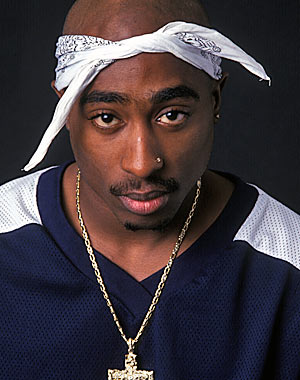From
my experiences with urban texts, I have seen that they generally ignore the
natural side of things, often because there really isn’t much to look at in the
communities that many rappers and other artists are from. Hip hop that one
might consider falling under the category of Urban Pastoral typically idealizes
not the physical beauty of the environment, but the struggle of day-to-day life
in these communities: the struggle that would not be possible without the close
ties formed between those living together. This is where a rapper’s interpersonal
relationships—with the family, the posse, or others—and real-life experiences take
the place of natural beauty that is presented in pastoral poetry. Urban and
rural art might sometimes share a common goal (idealizing the world around the
artist) but there is no doubt that they do it differently. A concrete example
might help here…
In “
Lycidas,” poet John Milton elegizes a man by
emphasizing his relationship with the natural world. From the very beginning,
imagery of “berries harsh and crude…leaves before the mellowing year,” evoke
the image of death as it occurs in nature. Meanwhile, in his elegy “Life Goes On” Tupac Shakur reminisces about the real-life experiences he shared with his
old friend: “Life as a baller, alcohol and booty calls // we used to do them as
adolescents, do you recall?” Both works immortalize the deceased subject, but in vastly different ways. Pastoral poetry
aims to study and reflect on the relationship between man and the natural world, but in a way that is abstract and incorporates transcendent themes; hip hop, however, lives in the
real and the immanent. In my opinion this is one of the major factors
contributing to the divide between them.
Anyone have any other thoughts on how
these types of works might be similar or different?


As it was established in class, hip hop songs can be construed as a type of pastoral for the urban/city life. Times have changed dramatically since the presence of John Milton, but I don't think the progression of the pastoral has led to Hip Hop music. The works of Milton and other pastorals have progressed and inspired newer and newer generations until today, when there are still pastoral writers for the modern world. However, I think it's a coincidence that Hip Hop music is considered a pastoral. This type of "urban pastoral" portrayed in Hip Hop songs may very well be urban pastorals, but they aren't a direct transcendent from the pastorals of old since I doubt it was a direct result of pastorals. Therefore, I do agree with Jamie. "Urban Pastoral" is definitely a stretch to make a new genre. If anything, it's just a subgroup that blossomed on the side.
ReplyDeleteI want to bring up the fact that what we read from poems or songs can never be a true relation of their (the poet or artist's) own experiences in their lives. Inevitably, a persona is being created. Thus, although it may seem as if the rapper is talking about personal subjects, it may be extended to relate to everyone in the neighborhood. From this foundation of possible universality, the rapper can possibly be attempting to capture what they consider to be the "nature" of their surroundings; such a nature may seem to be focused more in the people than actual environment, resulting in the rapper's lyrics of relationships instead of physical nature.
ReplyDeleteThus, I feel that a misconception may be made that nature is not talked about in hip hop, where actually the focus of nature has transitioned away from the physical vegetation to the people that make a society.
Good point. I agree that hip hop typically focuses more in "the people that make a society" as opposed to any kind of "physical vegetation." However I'm not sure any kind of transition occurred between the two within hip hop at any given time. Perhaps you meant that hip hop focuses on the people while other art forms are more nature-based (rather than that there was ever a transition within the single art form), which is fair to say. But again, I have a slight problem with grouping hip hop in the pastoral category for that reason. I see how ideas of the rural can be manipulated to fit an urban setting and its people, not to mention I see the value of comparing the art applying to these subjects; I only think that this manipulation is too drastic to make the stretch to group the art forms together.
ReplyDeleteI appreciate your thoughts...it seems as though where one decides to draw the line on what gives something pastoral qualities is merely personal preference.